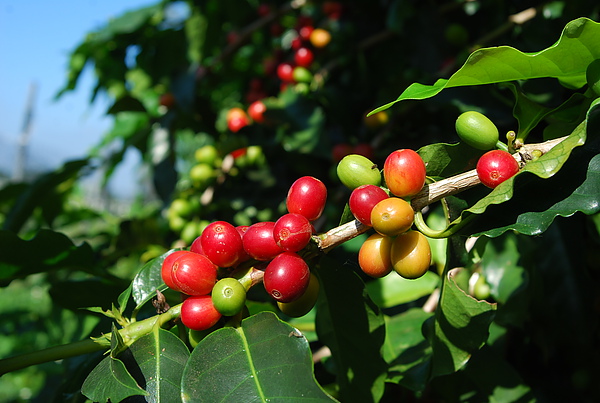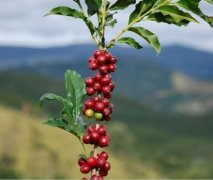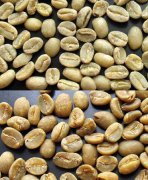Elaraby, the three original species of coffee trees, is a coffee variety.
Everyone should have heard of the coffee variety "Elaraby". The best quality beans of the famous Colombian coffee are all Elaraby varieties. When it comes to the variety of coffee, we must first understand the type of coffee tree. At present, the most important coffee beans in the world mainly come from Arabica, Robata and Liberia. these three varieties of coffee beans are the three original species of coffee trees, and the quality of coffee beans produced by other coffee trees is also higher than that of other coffee trees.

The Arabica coffee tree, which originated in Ethiopia, accounts for 70% of the world's output of coffee beans; the world-famous blue mountain caffeine, mocha coffee and so on are almost all Arabica species. Arabica coffee trees are suitable for growing in high mountains with large temperature difference between day and night, and ten soils with low humidity and good drainage; the ideal altitude is 500m ~ 2000, the higher the altitude, the better the quality. However, due to the weak ability to resist diseases and insect pests, it is more difficult to grow than the other two coffee trees.
The Robastian coffee tree, which originated in the Congo in Africa, accounts for about 20% to 30% of the world's production. Luoba Jinta coffee tree is suitable for planting in the lowlands below 500 meters above sea level, has a strong adaptability to the outside world, can resist bad weather, resist diseases and insect pests, and is in soil preparation. Weeding and pruning do not require much manual care, and can be allowed to grow in the wild. It is a kind of coffee tree that is easy to cultivate. But its flavor is more bitter than Arabica, and its quality is much lower, so it is mostly used to make instant coffee. In general, the coffee sold in fast food restaurants is mainly made of coffee beans grown in Robasta. Because it is made in Africa, most Africans drink robastian coffee.
The Liberian coffee tree is native to Liberia in Africa, and its cultivation history is shorter than that of the other two coffee trees, so it is limited to a few places such as Liberia, Suriname and Gaiana, so it accounts for less than 5% of the world's output. The coffee tree of Liberia is suitable for planting in the lowlands, and the coffee beans produced have a strong aroma and bitter taste.
Important Notice :
前街咖啡 FrontStreet Coffee has moved to new addredd:
FrontStreet Coffee Address: 315,Donghua East Road,GuangZhou
Tel:020 38364473
- Prev

Boutique Coffee Common sense Coffee beans are smooth and attractive
In ancient times, Arabs first dried and boiled coffee beans and drank the juice as stomach medicine, thinking it was helpful to digestion. Later, it was found that coffee had a refreshing effect, and because Muslims forbade drinking, coffee was used instead of alcoholic beverages as a refreshing drink. Although coffee was found in the Middle East, coffee trees originated in Africa.
- Next

Grading of raw coffee beans there are two ways to grade raw coffee beans.
There are two ways to classify raw coffee beans, one is the filter number, and the other is the elevation. It is divided by the filter number, and the size is size in terms of the screen size. Round beans are generally smaller than flat beans, between 8-13 and 12-29. 8, 9, 10. 12, 13. 18. 29 = small, medium, ordinary. Quasi-big. Big, extra large. The bigger the size, the bigger the beans. Like SC-.
Related
- Guji coffee producing area of Guji, Ethiopia: Humbela, Shakiso, Wulaga
- What is the most expensive variety of Qiloso in BOP multi-variety group?
- How to store the coffee beans bought home?
- Why are Yemeni coffee beans so rare now?
- Ethiopian Sidamo all Red Fruit Sun Sun Santa Vini Coffee beans
- SOE is mostly sour? What does it mean? Is it a single bean? what's the difference between it and Italian blending?
- Is Italian coffee beans suitable for making hand-brewed coffee?
- How to choose coffee beans when making cold coffee? What kind of coffee beans are suitable for making cold coffee?
- Just entered the pit to make coffee, what kind of coffee beans should be chosen?
- Can only Japan buy real Blue Mountain Coffee? What are authentic Jamaican Blue Mountain coffee beans?

